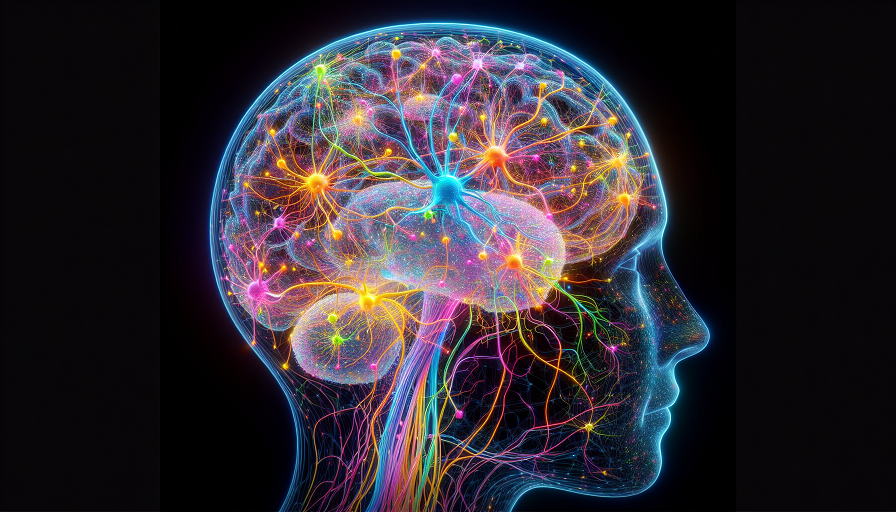
Have you ever wondered why some tunes stick in your mind long after you’ve heard them? Or how musicians can weave notes together to create masterpieces that move listeners emotionally and mentally? The answer lies in the fascinating relationship between music composition and the brain. Composing music is more than just an artistic endeavor; it reveals the brain’s secret language by activating hidden neural pathways that can boost cognitive functions, tap into creativity, and promote emotional healing.
Contents
How Music Affects the Brain
Music is much more than a series of pleasant sounds. It has profound effects on the brain and triggers widespread neural activity. When you listen to music, various parts of your brain light up like a Christmas tree. Here’s a breakdown of what’s happening:
- Auditory Cortex: This part of the brain processes the sound quality, pitch, and tempo of music. It’s like the brain’s primary music analyzer.
- Hippocampus: Known for its role in memory, this area helps connect music with past events or memories.
- Cerebellum: This part manages your motor functions and balance, so it’s involved when tapping your feet or even dancing to a rhythm.
- Amygdala: The epicenter for emotions; determines the emotional weight behind a song and how it makes you feel.
Unlocking Neural Pathways through Composition
Composing music requires a blend of creativity and analytical thought, leading to the activation of several different brain areas. Let’s delve deeper into how composing music taps into these hidden neural pathways:
The Left and Right Brain Collaboration
The left side of the brain is often associated with logic and analytical tasks, while the right side is linked to creativity and imagination. Music composition uniquely weaves both hemispheres together. Crafting melodies and rhythms involves analyzing musical structures (a left-brain activity) while also exploring new creative territories (a right-brain activity).
Enhancing Problem-Solving Skills
Composing music is like solving a complex puzzle. Musicians experiment with chords, progressions, and arrangements to create a piece that’s not only harmonious but emotionally resonant. In doing so, composers enhance their problem-solving abilities. Each new musical challenge strengthens pathways that are also used for decision-making and structured thinking in everyday life.
Cognitive Benefits of Music Composition
While composing music is an artistic pursuit, it also has significant cognitive benefits that may enhance everyday functioning. Here’s how:
Improved Memory
The act of composing music demands the memorization of numerous elements such as scales, melodies, and rhythms. This mnemonic exercise is like a workout session for the brain, strengthening the hippocampus and enhancing memory skills. Musicians often develop impressive recall abilities, whether in musical or non-musical contexts.
Boosted Creativity
To compose music, one must think outside the box and push the boundaries of conventional sound. This creative exercise encourages innovative thinking, a skill that can translate to problem-solving and creative tasks outside of music. Regularly composing exposes the brain to new experiences, further enhancing ingenuity and originality.
Increased Attention Span
Creating music often requires sustaining attention over long periods, especially during the composition and editing processes. This prolonged focus trains the brain’s ability to concentrate, leading to an improved attention span that can benefit academic and professional endeavors.
The Emotional Connection
Music composition is not just about technical skill; it’s deeply tied to emotion. Here’s how creating music can lead to emotional benefits:
Expressing Feelings
Music provides an outlet for expressing emotions that might be difficult to verbalize. For many, composing a song with the essence of what they’re feeling allows for a unique form of emotional release and understanding.
Stress Reduction
Engaging in music composition can act as a form of meditation, requiring focus and allowing people to become absorbed in the creative process. This can lead to a reduction in stress and anxiety, promoting a sense of tranquility.
Building Empathy
Through music, composers explore and convey emotions, crafting songs that resonate deeply with others. This not only helps build an empathetic understanding of various emotions but also fosters a deeper connection with listeners.
Getting Started with Music Composition
If you’re intrigued by the idea of unlocking your brain’s hidden potential through music composition, here’s a roadmap to embark on your journey:
Choose Your Instrument
Whether it’s a piano, guitar, or any digital software, choose an instrument or platform you feel comfortable with. The key is to become familiar with the tools at your disposal.
Learn the Basics
Start with the fundamentals, such as understanding notes, chords, and music theory. These building blocks will provide you with a solid foundation to begin composition.
Experiment and Play
Don’t be afraid to experiment with sounds and structures. Trial and error is a crucial aspect of the creative process and can lead to exciting new discoveries.
Record and Reflect
Record your compositions and listen back to them. Reflect on what works and what doesn’t. This process helps in refining your musical style and skill.
The Role of Brain Supplements in Music Composition
As we explore ways to enhance our brain’s capabilities through music composition, there’s another avenue that comes into play: brain supplements. These supplements are designed to support cognitive functions and may potentially boost the mental faculties involved in composing music.
What Are Brain Supplements?
Brain supplements, often referred to as nootropics, are compounds that can enhance cognitive performance. They typically aim to improve functions such as memory, creativity, motivation, and focus, all of which are critical for music composition. Common ingredients found in these supplements include Omega-3 fatty acids, Ginkgo Biloba, Bacopa Monnieri, and various vitamins and minerals known to support brain health.
How They Can Help
- Enhancing Memory: Ingredients like Bacopa Monnieri have been linked to enhanced memory retention, which can be particularly beneficial for musicians who need to memorize complex compositions and sequences.
- Boosting Creativity: Some brain supplements claim to enhance creative thinking by improving brain circulation and reducing mental fatigue, providing the mental clarity needed for innovative compositions.
- Improving Focus and Concentration: Nootropics such as Rhodiola Rosea are believed to reduce mental fatigue, enabling composers to maintain higher levels of concentration for longer periods, crucial during intricate composition sessions.
Music composition is a rewarding endeavor that not only stimulates creativity but also unlocks the brain’s hidden potential. Whether you’re a seasoned musician or a curious beginner, understanding the cognitive and emotional benefits music brings can transform how you engage with this enriching art form. While incorporating brain supplements into your routine might offer additional support, they should be part of a holistic approach that includes a healthy lifestyle. By embracing music’s powerful language, you tap into a reservoir of possibilities, where each note composed is a step towards personal and cognitive growth.

